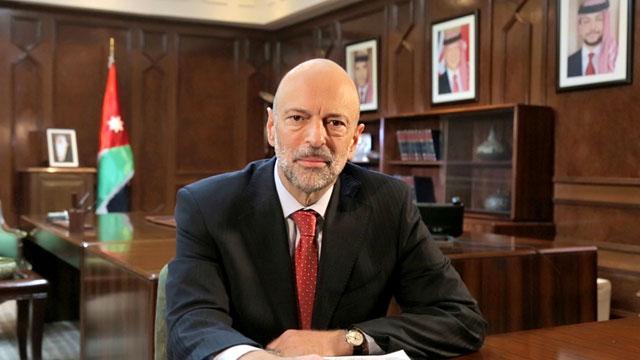- Local News
- Mon-2020-06-22 | 03:50 pm

In a televised statement addressing local developments and affairs, Razzaz added that he believes that "the most profound and significant economic impact of the crisis will hit the labour market and those who work in sectors battered by the ensuing lockdowns and work stoppage".
Highlighting the government’s response to the crisis, the prime minister said that his government has taken more than 400 decisions since the outbreak of the crisis and rolled out measures and packages to help the private sector weather the crisis and protect workers.
Given the current fiscal status, he added, the government found it necessary to defer a salary hike for employees of all public sectors until next year. The increase will be reintroduced in early 2021, he said.
Other measures included slashing senior employees’ bonuses and wage increases in government bodies, independent departments and government-owned companies with the aim of "protecting the most vulnerable communities".
The Kingdom’s current financial standing "requires commitment to paying taxes", Razzaz said.
"The payment of taxes is not a favour but a duty for those who yield profits from the national economy, live on Jordanian territory and use Jordanian talents and resources," he said.
He added: "The payment of taxes is a duty and a right of the Jordanian society because these taxes finance the public sector's payroll, educational and health services and other basic services that have helped us through this pandemic."
Razzaz stressed that the government "understands" the current challenges for sectors harmed by the crisis and "continues to explore ways to help these sectors" — namely tourism and transport — absorb the shock and ultimately recover.
He pointed out that the economy is "heading towards recovery and resilience", adding that the government is "seeking to resume flights with countries with similar epidemiological situations to Jordan's".
Razzaz also said that the Kingdom's epidemiological indicators are "good", as the majority of infections are not local and have come from abroad.
However, he said, "this does not mean that the challenge is over, as we are witnessing a second wave of the virus in neighbouring countries and the world. We have to remain vigilant".
From the onset of the crisis, Jordan has avoided responding to the pandemic using the herd immunity approach, Razzaz said, adding: "The herd immunity approach means that survival is for the strongest and the law of the jungle. This is neither consistent with our religious values, nor with the history of the Hashemites and the culture they have embodied in the Jordanian state for one hundred years, nor with our customs and traditions."
The
premier stressed that Jordan has been pursuing an approach that focuses
on medically and economically helping the most vulnerable groups and
those hard-hit by the crisis.









